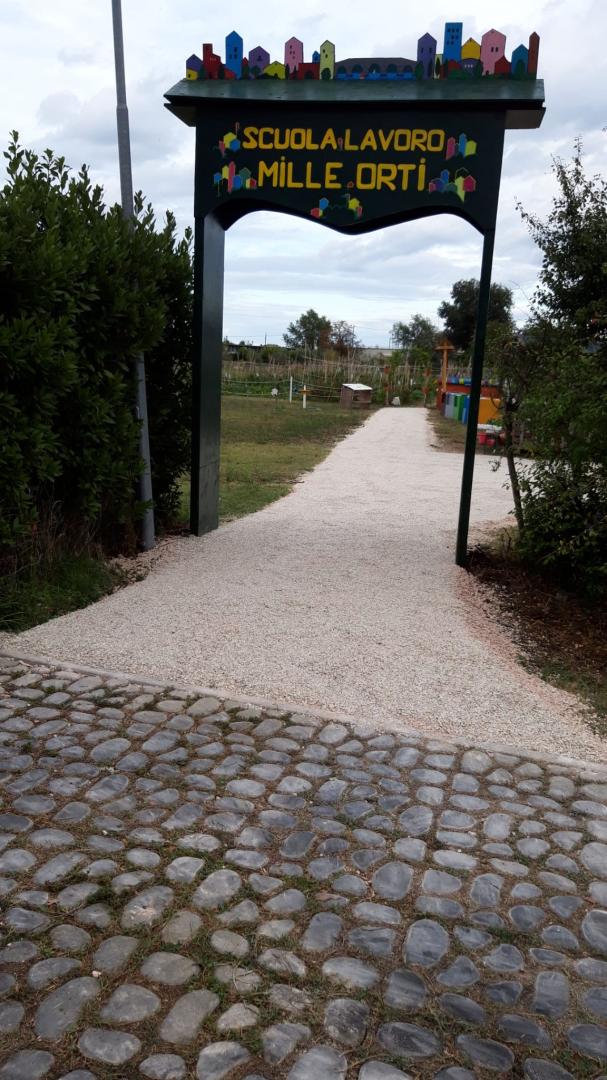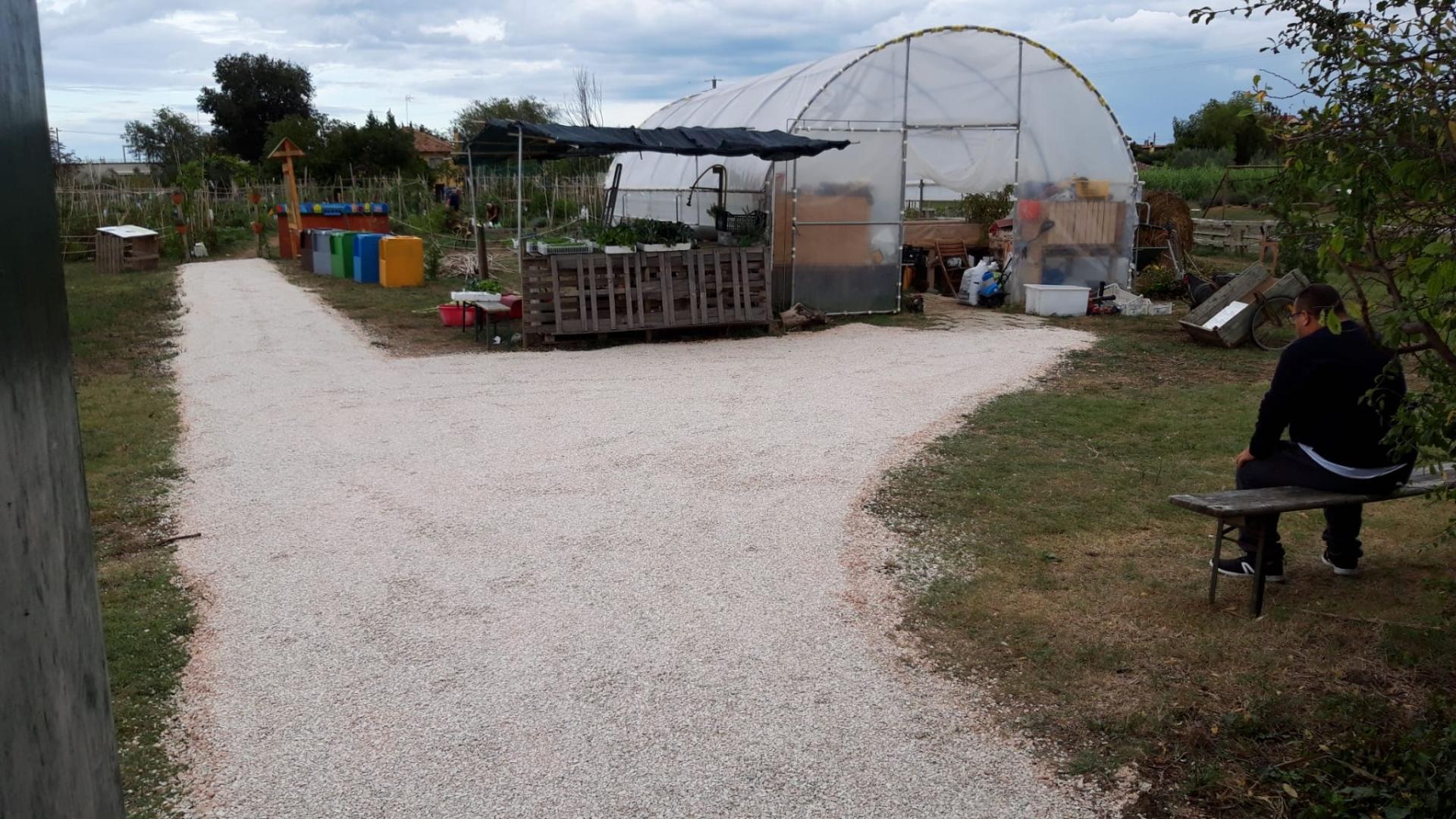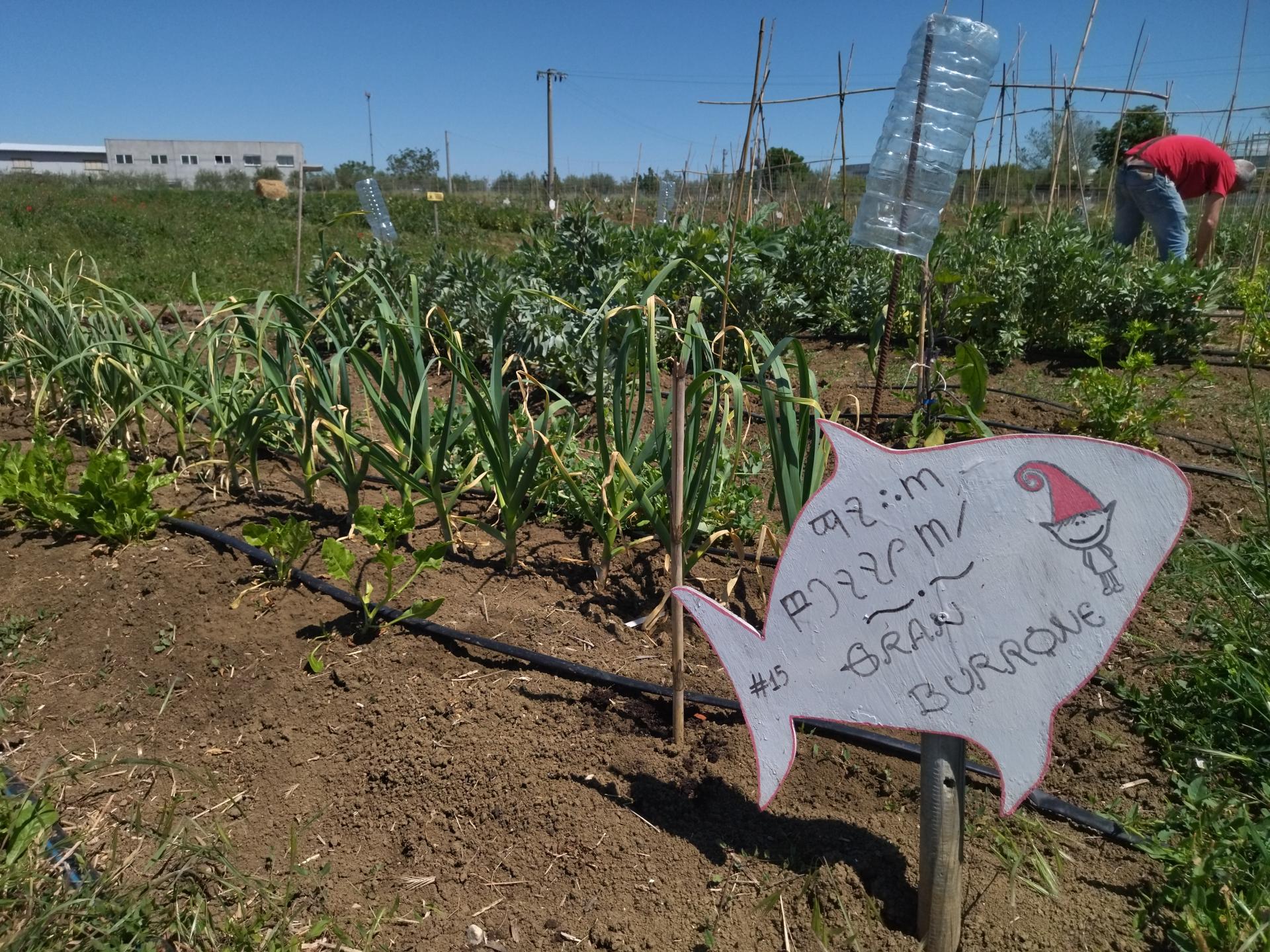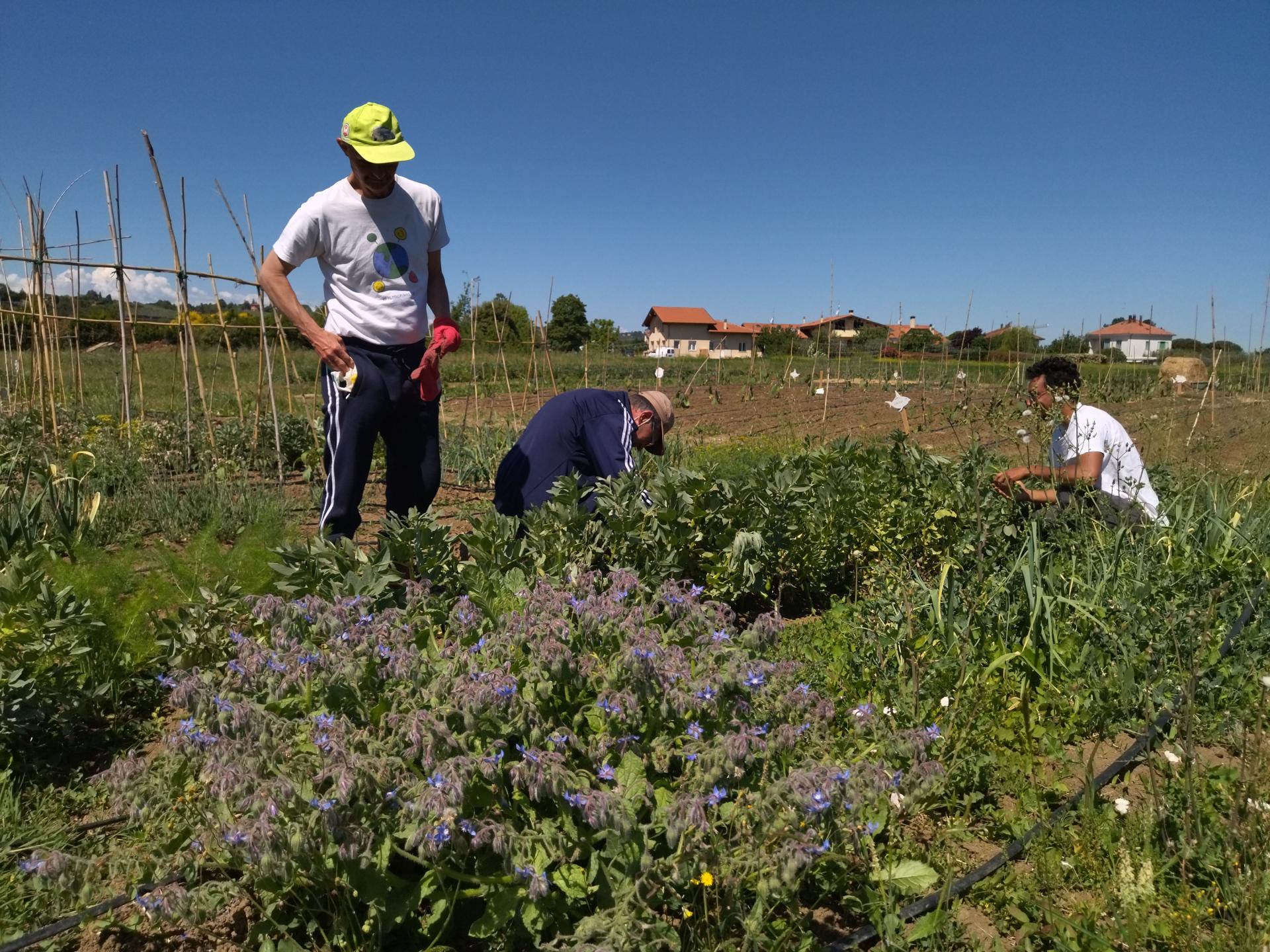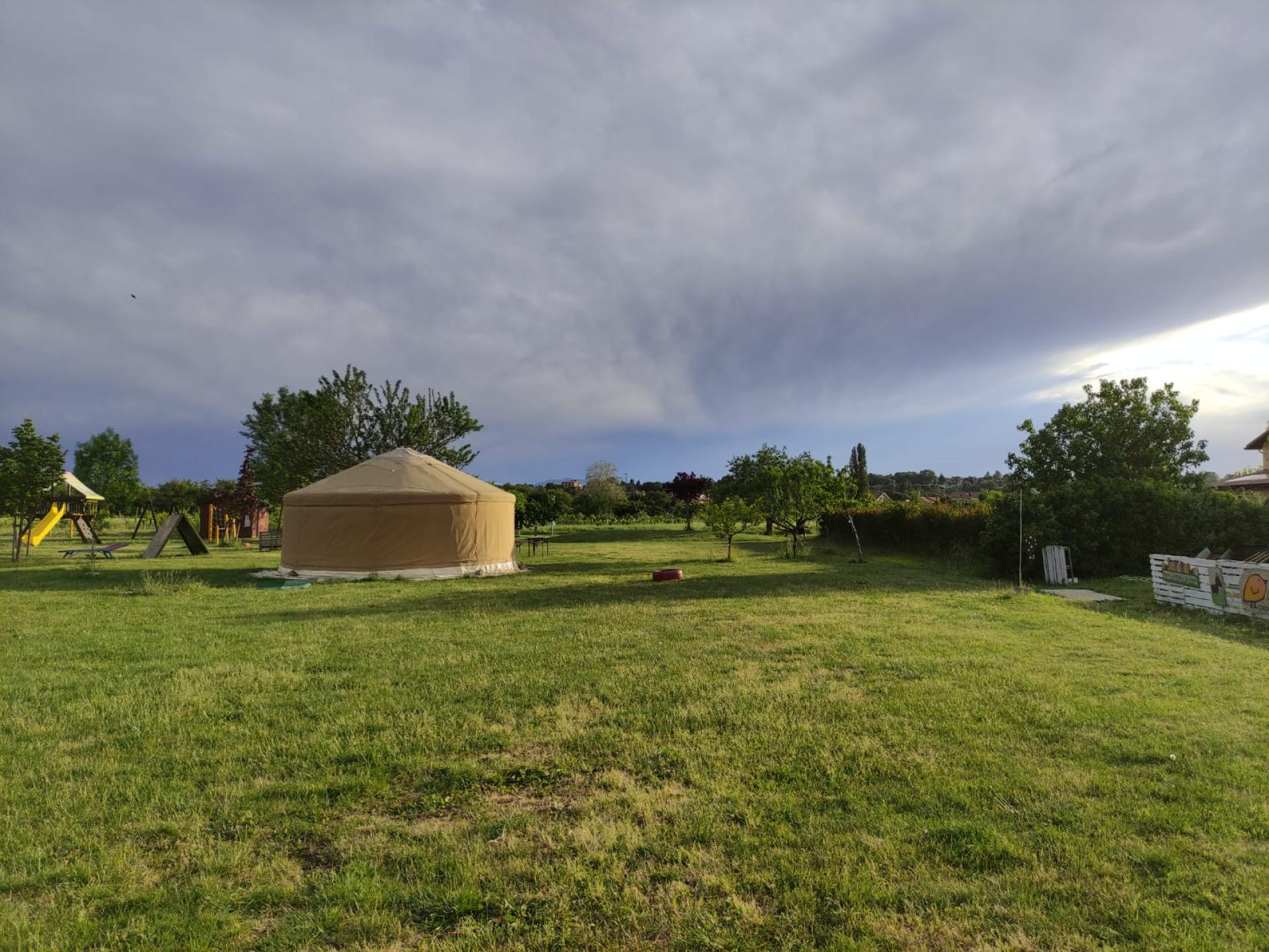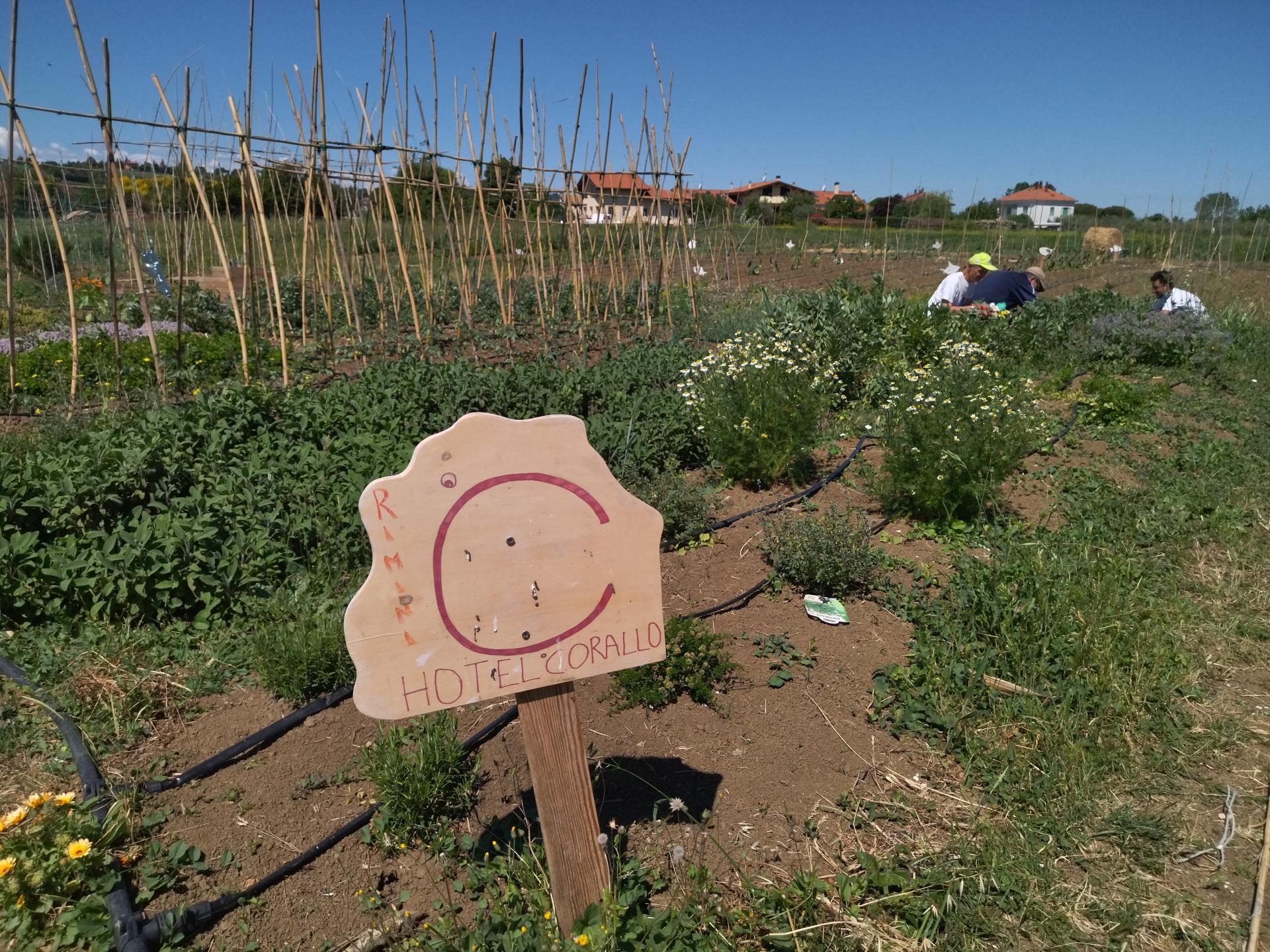1000 vegetable gardens
Basic information
Project Title
Full project title
Category
Project Description
“There can be no autonomy without job. There cannot be the same job for everyone ”.
1000 vegetable gardens for citizens is an innovative project about work training activities for people with Down syndrome or intellectual disabilities, supported by educators.
The aims of this project are: to enhance their ability at work, to improve their skills , to have a more active role in society, to promote self-empowerment and to increase personal well-being.
Project Region
EU Programme or fund
Description of the project
Summary
"1000 vegetables garden for citizens" is an innovative project born form the collaboration between the “Millepiedi Cooperativa Sociale” and the parents' association "Crescere Insieme".
It involves a large green area, located around Rimini - Italy -, on which it take place job training activities for people with Down syndrome or intellectual disabilities.
Activities:
- Vegetable gardens. This green area (4000 square meters) is divided into 45 gardens to rent. Here citizens, with the advices of an agronomist, have the opportunity to cultivate a plot of land or to delegate the care of their vegetable garden to people with disabilities, working supported by educators.
- The greenhouse. It is created for people with motor disabilities: they can grow vegetables without walking or bending down thanks to the pallets, placed at medium height,
- Outdoor activities. In this green area can be held workshops for families and school groups. These activities are carried out outdoors and involve the commitment of people with special educational needs.
- Honey production. In the green area there are 13 hives. Thanks to the work of bees, we produce honey, that is selled to citizens. We organize also workshops for schoolchildren, with the aim to discover and explore the tireless work of these precious insects.
- The donkeys: the farm has a fenced area that hosts 3 donkeys. Here we organize “pet therapy” workshops for children and for people with special educational needs.
- Sale point. Inside the green area there is a sale point. Here people can buy fruits, vegetables, eggs and honey cultivated in the vegetable gardens or producted in the farm.
Key objectives for sustainability
All the people involved in this project are supported by a multidisciplinary team (professional educators, neuropsychologist, agronomist) which ensures professional cares in order to increase individual skills and to join clinical and educational aims with daily work.
Through "learning by doing" approach, the multidisciplinary team works on motivation, respect for rules, personal responsibility, increase skills and autonomy and reduction of problem behaviors. All the professional roles involved use cognitive-behavioral approach methodologies (ex. problem solving, fading, shaping, chaining, prompting, tocken economy), specific tools (ex. visual agenda: a step-by-step guide to establishing work routines and tasks) and facilitators who will help to performe without support (ex. "Metrortaggio": rods with different colors in order to guide the sowing).
The multidisciplinary team deals with the selection of project participants, the choice of tools, the aims that have to be achieved and the periodic checks. This professional team work in a constant exchange of information collected during individual meeting sessions and in the daily work.
People involved in this project work not only to cultivate vegetable gardens, but also to increase cognitive learning (ex measures of length, weight, time, etc.) and to generalize all these specific acquisitions.
Key objectives for aesthetics and quality
In terms of aesthetics and quality of experience, the project "1000 vegetables garden for citizens" has developped itself also thanks to the use of recycled materials: we create a structured environment able to facilitate cognitive learning and work tasks for people with Down syndrome or intellectual disabilities.
From an aesthetic point of view, specific tools and facilitators built using recycled materials make appear particular all the green area (gardens are called with street names and marked with specific signs, there are colored bins for separate waste collection, we use rods with different colors in order to guide the sowing etc).
The recycled materiels also allow to create tools and facilitators builts on the special needs and requirements of the people who have to work there.
Key objectives for inclusion
Inclusion is the practice or policy of providing equal access to opportunities and resources for people who might otherwise be excluded or marginalized.
In this project we encourage inclusion through sharing activities ("doing things togheter"), in which people with disabilities play an important role and become points of reference for citizens who ask them for advice and help: each one, through its inidividuality, can bring added value.
The project provides for the livelihood of the farm through the sale of products and services achieved thanks to the work of the people involved. In this way we work on motivation and personal gratification: each person involved experiences the dignity of having skills to spend at work and feels part of a group.
Citizens that visit the green area can taste the quality of earth's labor products but also the social value of this experience, promoting it to their family members and friends, divulging its aims.
Results in relation to category
“Cooperativa Il Millepiedi” is a social cooperative that, from its birth in 1988, proposes to provide services aimed to improve life quality of people in need, hardship and social disadvantage and, at the same time, to improve the social and cultural context in which it operates.
The results/impacts achieved by the project are:
- personal empowerment of people with disabilities through positive exchanges with other people
- to create a context that facilitates socialization, through “doing something together”.
- to encourage cognitive learning in people with special educational needs.
- to promote equal employment opportunities and encourage inclusion processes
- to produce high qualities products and services, with low environmental impact.
- to contribute in improving the well-being and social development of our area by supporting and / or participating in local initiatives and projects.
- kindergartens and schools can visit this green area in order to know directly this experience and participate to the educational workshops we purpose.
- involvement of the parents' association "Crescere Insieme" in the development and management of the project.
- collaboration between the third sector and parents' associations.
How Citizens benefit
This project will have:
Direct beneficiaries:
- about 30 local families (citizens who rent the vegetable gardens);
- about 10 persons with Down syndrome or intellectual disabilities who work directly in the project.
- different hotels on the Riviera (which have rented a vegetable garden) can use and taste high quality'products of the earth's labor
Indirect beneficiaries:
- all the families of the persons involved in the project (“Crescere Insieme” Association)
- citizenship.
The project would:
- create job opportunities, both for specialized local people (professional educators, psychologist, agronomist) and for people with intellectual disabilities and Down syndrome.
- create products and services for the community.
- increase the collaboration with private companies in our area (ex. hotels and farms): offering more qualified products and services (in terms of attention to social issues), they can expand their clients, involving the one who are more sensitive to these issues.
- realize low-cost workshops and activities that engage people with special educational needs.
- give relief to families whose children are involved in the project.
- sale high quality's fruits and vegetables, produced thanks to daily work in the vegetable gardens.
Innovative character
The innovative character of the project are:
1) the systemic dimension, thanks to the dialogue between the third sector (Cooperativa sociale il Millepiedi) and parents' association (Crescere insieme) and between people playing different roles (parents, educator, neuropsychologist, agronomist)
2) the desire to create a real "educating community", in which everyone plays an important role
3) to use the "outdoor education" to: develop a deeper relationship with nature; enhance personal and social development; learn how to overcome adversity and increase resilience; improve personal skills.
In the last two years the project has allowed the involvement of 6 people with disabilities and 30/40 families in as many co-managed gardens. The people involved in the project have increased their skills and generalized them. The project has favored the diffusion of a culture of inclusion and sustainability. Two hotels of the Riviera have recognized the quality of our fruits an vegetables and they used them in their menu.

